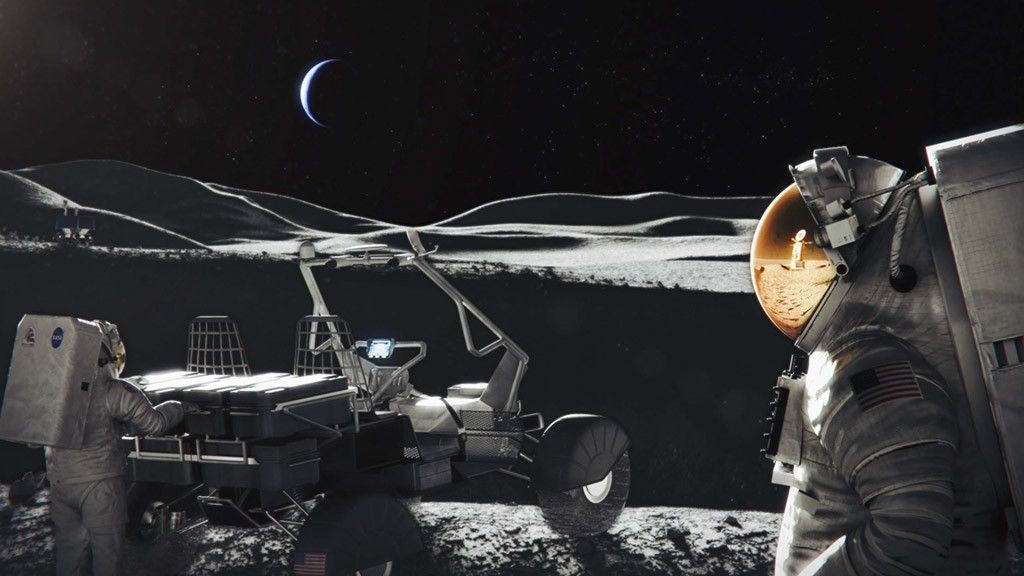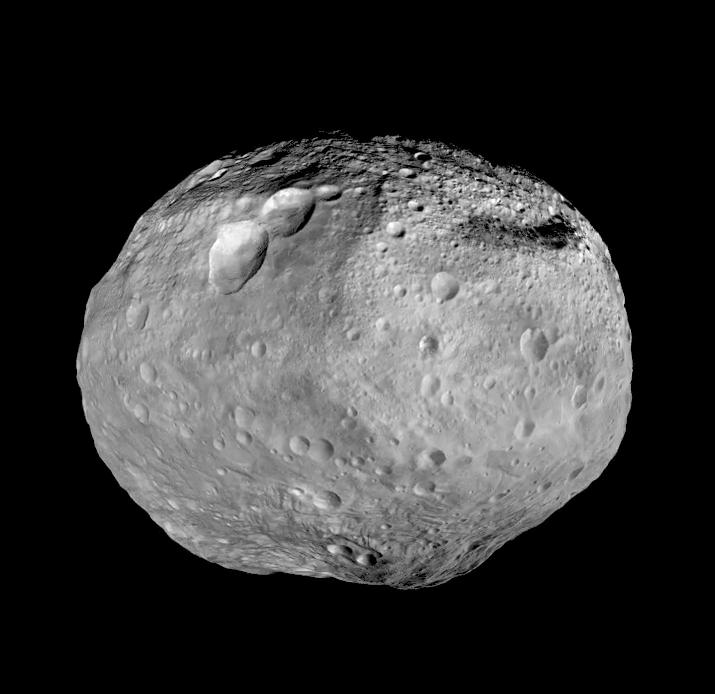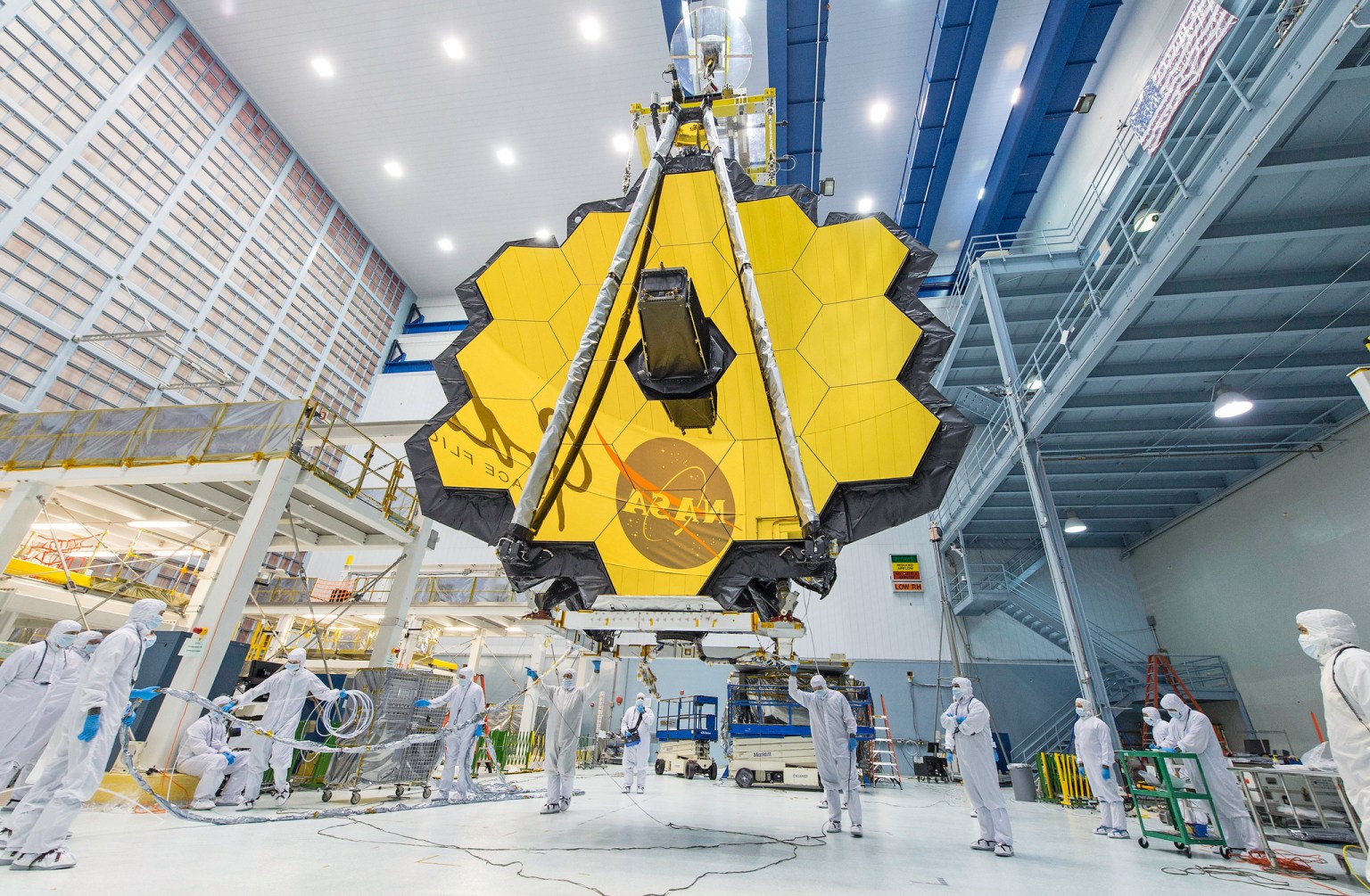Watch the replay of OTPS’ “Symposium on the Macroeconomics of Space”
Update: This event has passed, and registration is closed. We invite you to watch the video replay of the event.
NASA’s Office of Technology, Policy, and Strategy invites you to join us at the “Symposium on the Macroeconomics of Space” happening on Thursday, September 5, 2024, from 8:30 a.m. to 12:30 p.m. EDT in the James Webb Auditorium at NASA Headquarters and virtually via WebEx.
OTPS is bringing together civil servants and leading researchers on the economic impacts of public R&D spending, to discuss the macroeconomics of space investments. This symposium will feature academic presentations, a panel discussion, highlights from the upcoming FY23 NASA Economic Impact Report, and a keynote speech from Heather Boushey of the President’s Council of Economic Advisers—the first ever CEA appearance at NASA!
We’ll explore multiple perspectives, from annual economic impacts to decades-long effects on aggregate productivity, to offer a new level of integrated insight into the macroeconomic impacts of NASA investments. For more information, a preview at our agenda, and to RSVP, see details below. We hope to see you there!
Register to attend in-person or virtually: This event has passed, and registration is closed. We invite you to watch the video replay above.
Background
The macroeconomic implications of space-related government spending have long been a topic of interest within NASA and the Federal government more broadly. While NASA programs often focus on scientific and exploration goals, questions of NASA’s economic impacts and benefits to American society at large are frequent topics of interest from members of Congress and the general public. Toward this end, NASA publishes a biannual Economic Impact Report to assess economic benefits of NASA spending across the country. While this is of substantial interest to the US space community – as evidenced by media attention the previous report received – there remain open questions about long-run impacts through channels like NASA-developed technologies proliferating through the economy, NASA-funded methods of production enhancing output over time, and NASA-incentivized activities spurring further private investments in productive activity.
A recent wave of economic research provides new evidence on these long-run impacts. Their magnitude creates macroeconomic implications for national space policy. By some estimates, non-defense R&D spending – the bulk of which has historically been NASA spending – accounts for about one quarter of business productivity growth in the postwar period, with long-run social returns – the cumulative benefit to American society per dollar spent – of about 200%. For comparison, the social rate of return on overall US R&D investment is about 67%. As Treasury Secretary Janet Yellen recently noted: “… there is ample evidence [government research and development] is undersupplied, including due to a significant decline in federal R&D spending.” Paired with the evidence from the Economic Impact Report regarding annual employment effects generated by NASA spending around the country, these results suggest NASA offers a unique mechanism to promote American economic resilience, opportunity, and growth.
This symposium convenes leading researchers on the economic impacts of public R&D spending and civil servants to discuss the macroeconomics of space investments. It bridges multiple perspectives, from annual employment impacts to decades-long effects on aggregate productivity, to offer an unprecedented level of comprehensive insight into the macroeconomic impacts of NASA investments.
Event highlights (All times listed are in EDT and subject to change)
- 8:30 -9 a.m. In-person arrival and check-in
- 9-9:15 a.m. Introduction to workshop
- 9:15-9:30 a.m. Keynote speaker Heather Boushey, Council of Economic Advisers
- 9:30-10:45 a.m. Presentations:
- Andrew Fieldhouse/Karel Mertens, The Returns to Government R&D: Evidence from U.S. Appropriations Shocks
Measuring the causal impact of government R&D on business-sector productivity, using postwar changes in federal R&D appropriations to estimate long-term economic returns to non-defense R&D. - Arnaud Dyèvre, Public R&D Spillovers and Productivity Growth
Quantifying the impact of declining public R&D funding on U.S. productivity growth using 70 years of firm-level patent and balance-sheet data to compare public and private R&D spillovers. - Shawn Kantor/Alexander Whalley, Moonshot: Public R&D and Growth
Examining the Space Race to assess the impacts of windfall R&D spending on manufacturing and regional economies using declassified National Intelligence Estimates of technologies needed for space missions, detailed Census data, and data on patent funding.
- Andrew Fieldhouse/Karel Mertens, The Returns to Government R&D: Evidence from U.S. Appropriations Shocks
- 10:45-11 a.m. Coffee break
- 11-11:20 a.m. NASA Economic Impact Report with Alex MacDonald
- 11:20-11:50 a.m. Closing panel, “Space in the Federal R&D portfolio” with Alex MacDonald, Arnaud Dyèvre, Andrew Fieldhouse, and Shawn Kantor. Akhil Rao as moderator.
- 11:50 a.m.-12:00 p.m. Closing remarks, Alex MacDonald





























